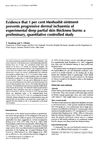Search
for
Sort by
Research
30 / 437 results
research A Keratinocyte-Specific Epoxygenase, CYP2B12, Metabolizes Arachidonic Acid with Unusual Selectivity, Producing a Single Major Epoxyeicosatrienoic Acid
CYP2B12 enzyme in skin cells converts arachidonic acid into specific bioactive lipids.

research Role of Arachidonic Acid in Promoting Hair Growth
Arachidonic acid helps hair grow by increasing growth factors and improving follicle health.

research Metabolic Pathways of Eicosanoids: Derivatives of Arachidonic Acid and Their Significance in Skin
Eicosanoids are crucial for skin health, and targeting their pathways may help treat skin conditions.

research Distribution of Glycolipid and Unsaturated Fatty Acids in Human Hair
Human hair has more unsaturated fats inside than on the surface, and certain lipids may help bind the outer and inner layers together.

research Study on the Mechanism of Cadmium Chloride Pollution Accelerating Skin Tissue Metabolism Disorder, Aging and Inhibiting Hair Regeneration
Cadmium chloride pollution can cause skin disorders, speed up aging, and prevent hair growth.

research Group IID, IIE, IIF, and III Secreted Phospholipase A2s
Different sPLA2 enzymes affect immunity, skin and hair health, reproduction, and may be potential targets for therapy.

research Influence of Human Placenta Extracts on Prostanoids Production in Cultured Hair Follicle-Derived Keratinocytes: The Possibility of Pharmaceutical Regenerative Medicine
Human placenta extract may promote hair growth by affecting certain lipid compounds.

research Perturbations in Fatty Acid Metabolism and Collagen Production Infer Pathogenicity of a Novel MBTPS2 Variant in Osteogenesis Imperfecta
A new MBTPS2 gene variant disrupts fat metabolism and collagen production, causing Osteogenesis imperfecta.

research Endogenous Retinoids in the Hair Follicle and Sebaceous Gland
Maintaining the right amount of retinoic acid is crucial for healthy hair and skin.

research The Role of Linoleic Acid in Skin and Hair Health: A Review
Linoleic acid is important for healthy skin and hair.

research Xenobiotic-Metabolizing Enzymes in the Skin of Rat, Mouse, Pig, Guinea Pig, Man, and in Human Skin Models
Different species and human skin models vary in their skin enzyme activities, with pig skin and some models closely matching human skin, useful for safety assessments and understanding the skin's protective roles.

research Selective Inhibition by Minoxidil of Prostacyclin Production by Cells in Culture
Minoxidil stops cells from making prostacyclin, which may help with hair growth. More research is needed.

research Tumor Promotion in Skin: Are Active Oxygen Species Involved?
Active oxygen species might be involved in skin tumor growth, but their exact role is unclear.

research Evidence That 1 Percent Meshushit Ointment Prevents Progressive Dermal Ischemia of Experimental Deep Partial Skin Thickness Burns: A Preliminary, Quantitative Controlled Study
Meshushit ointment helps form thicker healing tissue and preserves hair follicles in burns.

research Vitamin D Receptor: Molecular Signaling and Actions of Nutritional Ligands in Disease Prevention
Vitamin D receptor interacts with certain dietary components to help prevent diseases and regulate hair growth.

research Hair Darkening in Porphyria Cutanea Tarda
Two patients with porphyria cutanea tarda experienced their grey hair turning dark again.

research Minoxidil Upregulates the Expression of Vascular Endothelial Growth Factor in Human Hair Dermal Papilla Cells
Minoxidil boosts growth factor in hair cells, potentially promoting hair growth.

research Fetal Alcohol Syndrome: Current Status of Pathogenesis
The document concludes that the exact way alcohol causes harm to fetal development is unknown, but it significantly affects nutrient transport to the fetus and a safe level of alcohol during pregnancy is not determined.

research Chronic Inflammatory Diseases Stimulated by Current Lifestyle: How Diet, Stress Levels, and Medication Prevent Our Body from Recovering
Modern lifestyles, including poor diet, stress, and long-term use of certain medications, hinder the body's ability to heal from inflammation, leading to chronic diseases.

research A Prospective, 1-Year Trial Using Saw Palmetto Versus Finasteride in the Treatment of Category III Prostatitis/Chronic Pelvic Pain Syndrome
Finasteride improves chronic pelvic pain, saw palmetto doesn't.

research Activation of Cytoprotective Prostaglandin Synthase-1 by Minoxidil as a Possible Explanation for Its Hair Growth-Stimulating Effect
Minoxidil boosts hair growth by activating PGHS-1.

research Review of Hair Follicle Dermal Papilla Cells as In Vitro Screening Model for Hair Growth
Dermal Papilla cells are a promising tool for evaluating hair growth treatments.

research Differences in Perceptions of Beauty and Cosmetic Procedures in Ethnic Patients
The cosmetic industry should adapt to the varied beauty standards of ethnic groups and offer specialized treatments.

research Hair Growth Effect of Minoxidil
Minoxidil helps hair grow by improving blood flow and increasing growth factors in hair follicles.

research Sebaceous Immunobiology: Skin Homeostasis, Innate Immunity Coordination, Inflammatory Response, and Disease Associations
Sebaceous glands play a key role in skin health, immunity, and various skin diseases.

research Role of Bulge Epidermal Stem Cells and TSLP Signaling in Psoriasis
Blocking TSLP reduces skin inflammation and cell overgrowth in psoriasis.

research Pruritus, Allergy and Autoimmunity: Paving the Way for an Integrated Understanding of Psychodermatological Diseases
The conclusion is that understanding the complex relationship between allergies, autoimmunity, and psychological factors is key to treating skin disorders with itching.

research Human Scalp Hair Follicles Express Prostaglandin E2 Lipid Mediator and Receptors for PGE2
Human scalp hair follicles have PGE2 and its receptors, which might affect hair growth.
research Mechanisms of Action of Dehydroepiandrosterone
DHEA affects various tissues by interacting with multiple receptors and can be converted into sex hormones.